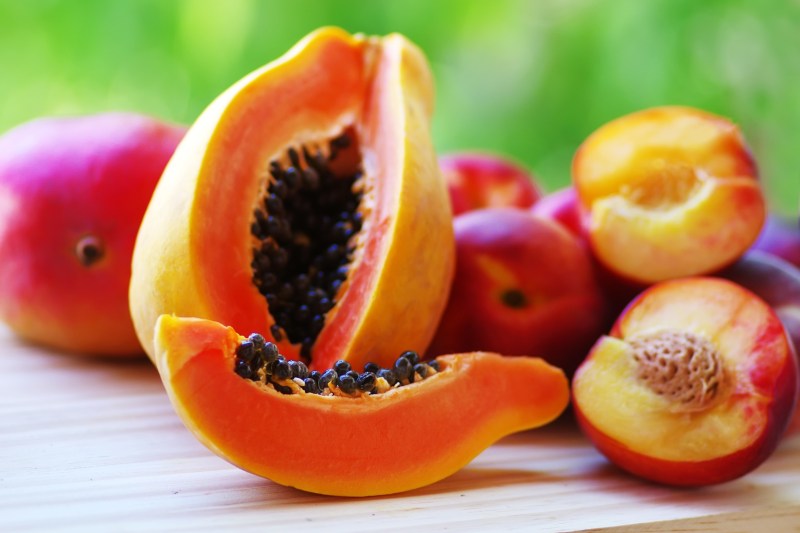
Gorging on hotdogs and ice cream is fun. But we should not forget to spruce up our diet with healthier options, like fresh fruits. No one fruit will provide all the nutrition that a person needs in a day. In fact, vegetables are typically more nutrient-rich options and lower in sugar than fruit. However, some nutrients, like vitamin C, are found in higher levels in the latter than the former.
Using the USDA’s FoodData Central as our main source, we researched the nutrient makeup of many popular fruits across the globe to bring you our roundup of the healthiest fruits for this season and beyond. Once you purchase these fruits, you can use them as ingredients for concocting creamy milkshakes or your morning smoothies.
Guava
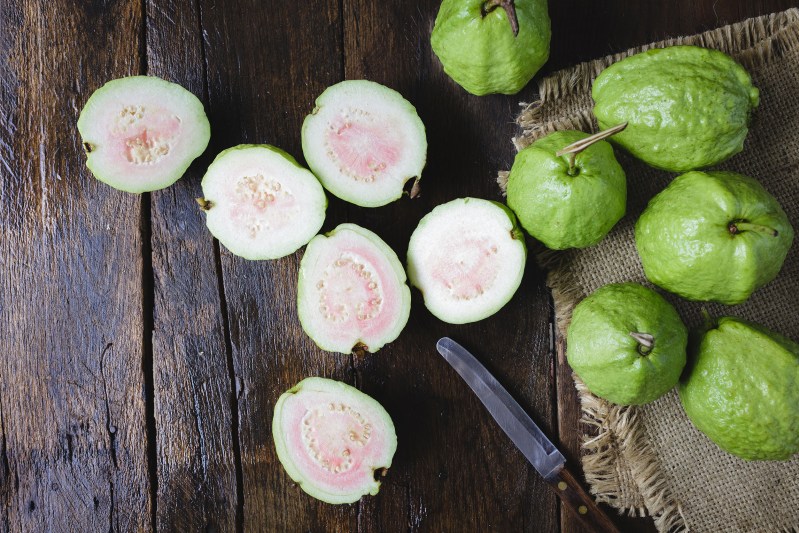
Guava is a superfood. It contains massive amounts of lycopene, and is also rich in potassium, phosphorus, vitamin C, folate, beta-carotene, and even has trace amounts of B vitamins, which is rare for a fruit. Guava is high in fiber and moderately low in sugar, making this a good fruit to include in your daily diet! Lycopene has been studied more closely over the last 20 years and is now recognized as one of the most powerful carotenoids for its anti-oxidative benefits.
Tomato

To answer the age-old question, tomato is a fruit! And a quite nutritious one at that. Tomatoes are also known for being rich in lycopene. This is where it gets its red color. Tomatoes also contain choline, vitamin E, vitamin K, niacin, vitamin A, beta-carotene, alpha-carotene, lutein, and zeaxanthin, making the tomato a highly nutritious fruit to include in your diet. Choline is typically found in animal proteins and is important for the nervous system and muscular control.
Choline may be harder for vegans to get in their diets, making tomatoes a great fruit to include in a vegan or vegetarian diet. The latter nutrients (vitamin A, beta-carotene, alpha-carotene, lutein, zeaxanthin) are mostly carotenoids that are essential for eye health and the immune system and also important for their anti-inflammatory, antioxidant, and anti-carcinogenic properties.
Papaya
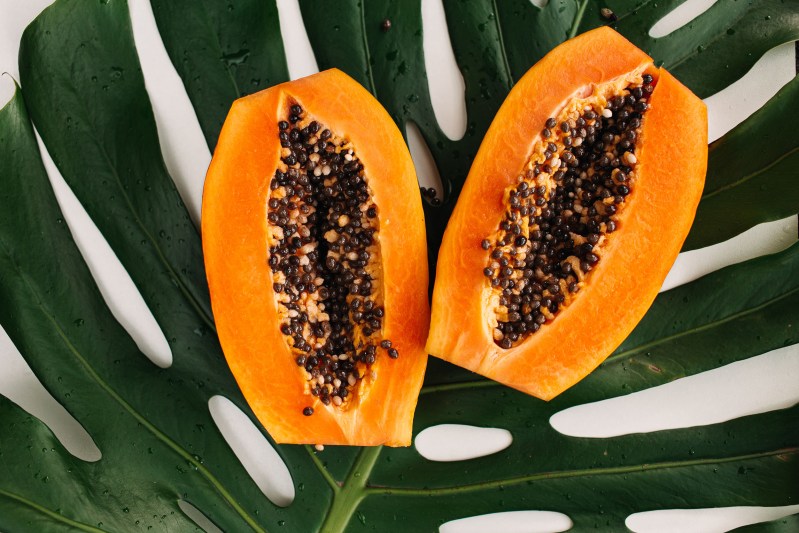
Papaya is another superfood containing large amounts of lycopene, beta-cryptoxanthin, lutein, zeaxanthin, vitamin C, potassium, magnesium, calcium, and small amounts of niacin and vitamin B6. As you can see, Papaya is a nutrient-rich food to include in your diet. It is hard to get B vitamins like niacin and vitamin B6 from sources outside of animal proteins, which makes papaya another good nutrient-dense fruit for vegans and vegetarians.
Grapefruit
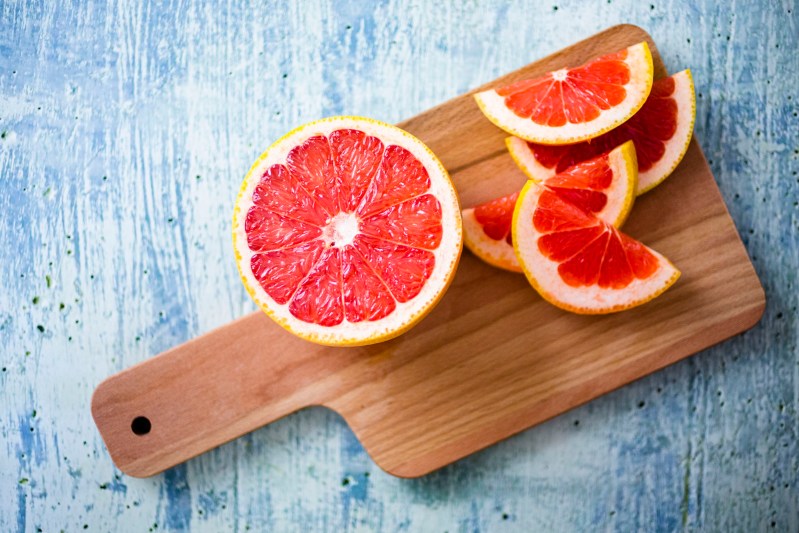
Grapefruit is another underrated fruit for eye health (beta-carotene, vitamin A) and nutrients found in animal products (choline, vitamin B6, calcium, phosphorus), and not just vitamin C like most citrus fruits are known for. Beyond its health benefits, it makes for a great citrus-based cocktail.
Mangoes
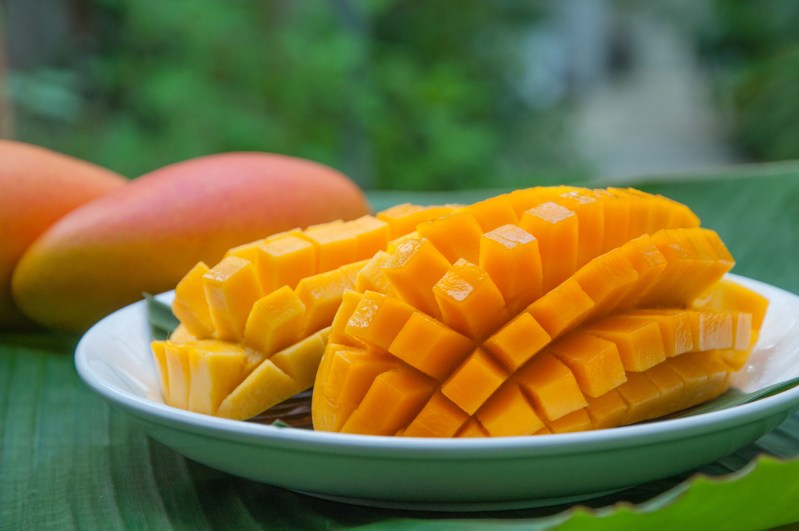
Mangoes are high in sugar (100 grams of mango contains 14 grams of sugar), but are very rich in nutrients. Half a cup of mango will give you a healthy serving of calcium, magnesium, phosphorus, potassium, copper, selenium, vitamin C, niacin, vitamin B6, folate, choline, vitamin A, beta-carotene, and even vitamin E. Many of these nutrients are commonly found in animal proteins or nuts, making mango a great part of a vegan or vegetarian diet.
Watermelon
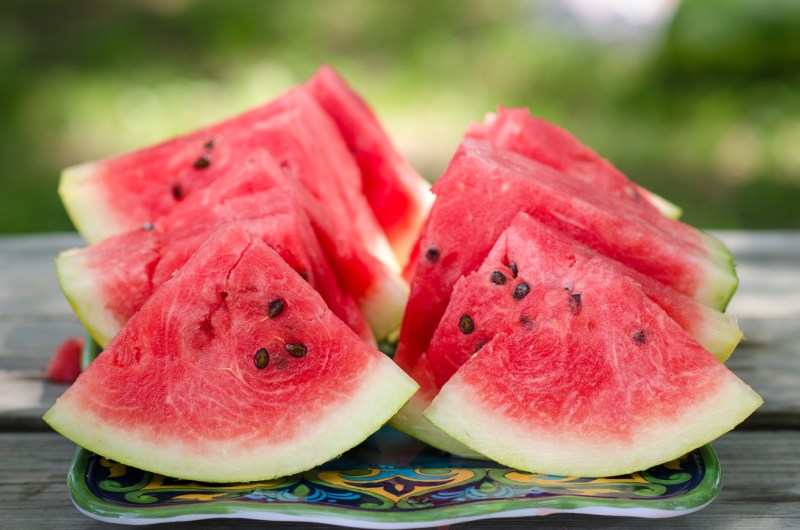
Watermelon is an underrated fruit. While it doesn’t have a wide range of different nutrients, it is an excellent source of lycopene. A two-thirds of a cup serving of watermelon provides 4,500 micrograms of lycopene, which is more than most other lycopene-rich fruits and vegetables, like tomatoes. Watermelon is also a healthy source of vitamin B6, beta-carotene, vitamin A, and potassium. It is also pretty low in sugar, making it a healthy fruit to consume!
Peaches
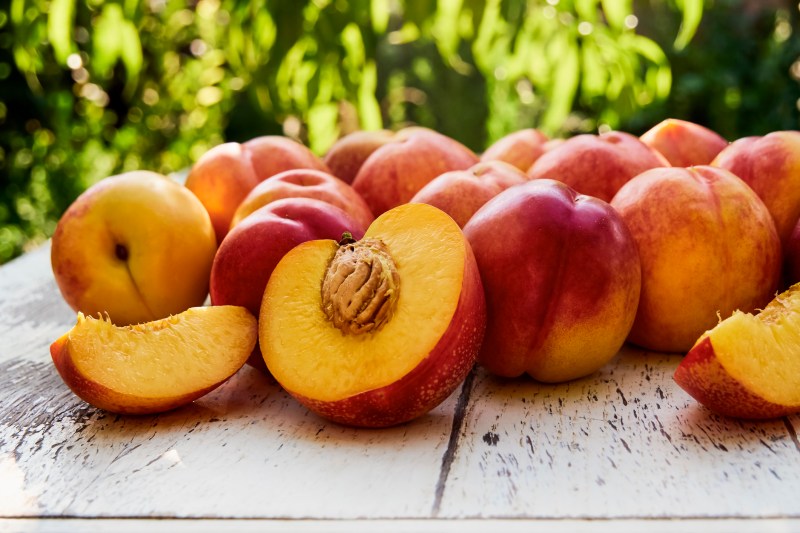
Peaches are another underrated fruit, but these are one of the most nutrient-rich foods that grow across the continental United States. Peaches are a good source of selenium, copper, phosphorus, niacin, vitamin A, beta-carotene, lutein, zeaxanthin, and vitamin E. If you grab peaches and want to preserve them, make sure to freeze your peaches.
Oranges
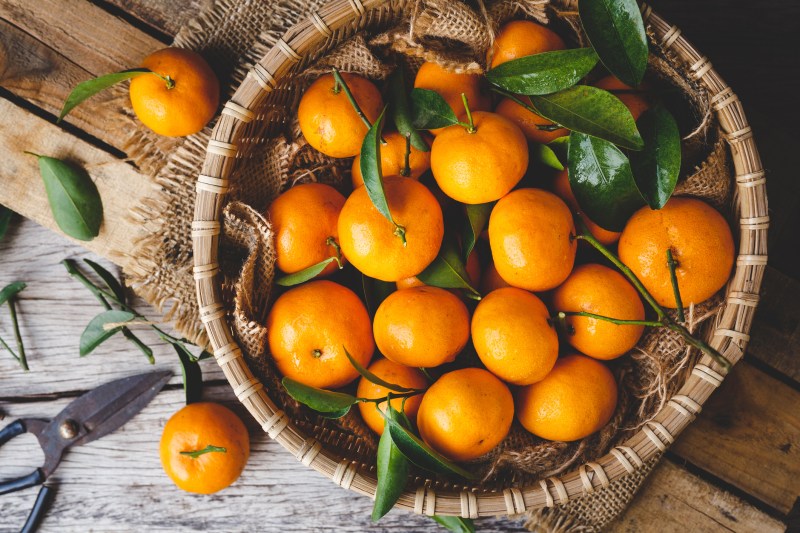
Fresh orange juice is great to start your morning. Oranges are known for their vitamin C, but they are actually rich in a lot of other nutrients besides vitamin C. Eat oranges for calcium, potassium, copper, selenium, vitamin B6, folate, choline, lutein, and zeaxanthin.
Nectarines
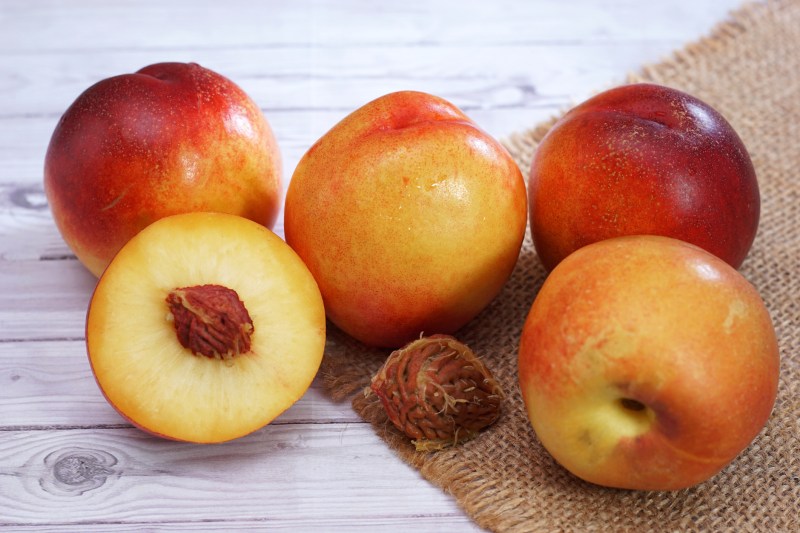
Nectarines are nutritionally similar to their cousins, the peaches. Nectarines are also grown across the continental United States. They also contain lots of phosphorus, potassium, copper, zinc, niacin, lutein, zeaxanthin, and vitamin E.
Kiwi
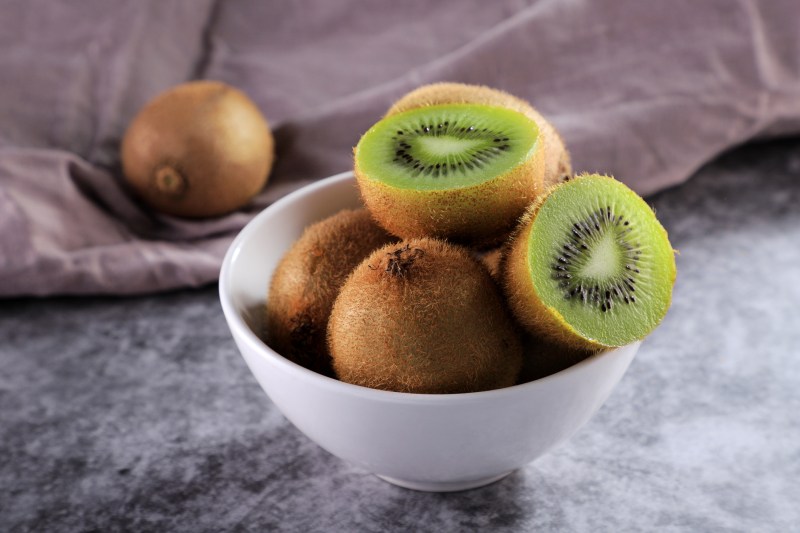
Kiwi is not as much of a “superfood” as some of the other fruits listed here. However, kiwi contains plenty of nutrients. It is rich in calcium, magnesium, phosphorus, potassium, copper, vitamin C, niacin, vitamin B6, folate, choline, lutein, zeaxanthin, vitamin E, and vitamin K. Vitamin K is popularly found in green leafy vegetables, but can also be taken in from this healthy fruit!
Durian
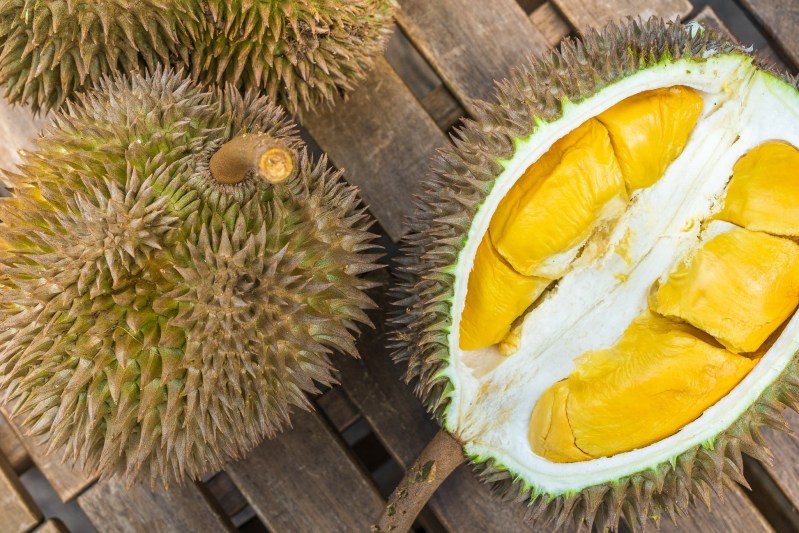
Durian tastes a little bit like jackfruit, and like jackfruit, it has been popularly eaten as a meat substitute at vegan restaurants across the United States for the past several years. Interestingly, even though it is a fruit, durian is rich in protein, fat, and carbohydrates, making it nutritionally dissimilar from other fruits. It is rich in nutrients like magnesium, phosphorus, potassium, copper, thiamin, riboflavin, niacin, folate, beta-carotene, and alpha-carotene. The B vitamins mentioned (thiamin, riboflavin, niacin, and folate) and the minerals magnesium, phosphorus, and copper are hard to get in a vegetarian diet, so this is a good fruit to consume if your diet is low in meat and animal products!
Blueberries

Blueberries are bursting with antioxidants, particularly anthocyanins, which are flavonoid pigments that give blueberries their characteristic blue color. On top of their antioxidant punch, blueberries are a good source of essential vitamins and minerals for your body. They’re particularly rich in vitamins C and K, along with manganese and dietary fiber, all in a low-calorie package. Including blueberries in your diet can contribute to overall health in a number of ways, such as improved heart health, reduced risk of type 2 diabetes, boosted cognitive function, and enhanced immune system function.



